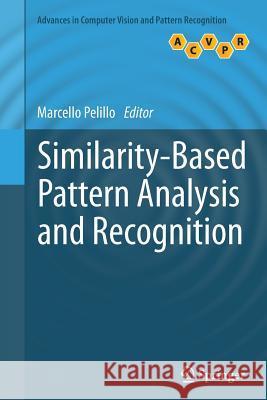Similarity-Based Pattern Analysis and Recognition » książka
Similarity-Based Pattern Analysis and Recognition
ISBN-13: 9781447169505 / Angielski / Miękka / 2016 / 291 str.
The pattern recognition and machine learning communities have, until recently, focused mainly on feature-vector representations, typically considering objects in isolation. However, this paradigm is being increasingly challenged by similarity-based approaches, which recognize the importance of relational and similarity information.This accessible text/reference presents a coherent overview of the emerging field of non-Euclidean similarity learning. The book presents a broad range of perspectives on similarity-based pattern analysis and recognition methods, from purely theoretical challenges to practical, real-world applications. The coverage includes both supervised and unsupervised learning paradigms, as well as generative and discriminative models.Topics and features: explores the origination and causes of non-Euclidean (dis)similarity measures, and how they influence the performance of traditional classification algorithms; reviews similarity measures for non-vectorial data, considering both a "kernel tailoring" approach and a strategy for learning similarities directly from training data; describes various methods for "structure-preserving" embeddings of structured data; formulates classical pattern recognition problems from a purely game-theoretic perspective; examines two large-scale biomedical imaging applications that provide assistance in the diagnosis of physical and mental illnesses from tissue microarray images and MRI images.This pioneering work is essential reading for graduate students and researchers seeking an introduction to this important and diverse subject.











